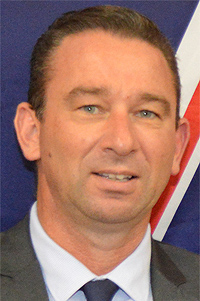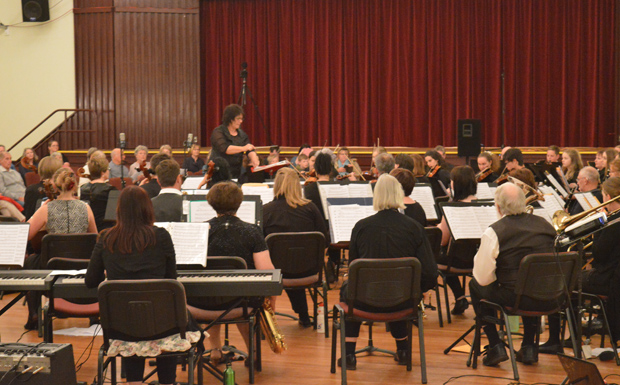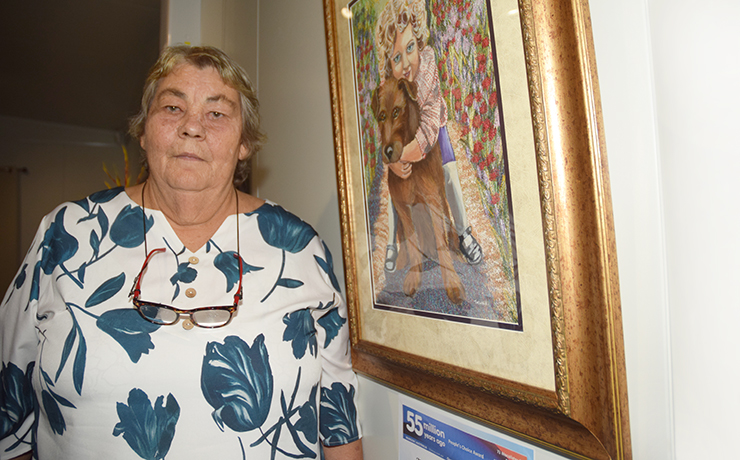
Craig Crawford
March 12, 2019
The State Government has rejected Opposition claims that changes to management and funding will be “the death of the Rural Fire Service as we know it”.
The proposed restructure is due to start on April 8.
Emergency Services Minister Craig Crawford said rural fire brigades would be directly reporting to their regionally based Assistant Commissioners.
Mr Crawford blasted the LNP for media releases which he said had “the issue entirely backwards”.
Shadow Emergency Services Minister Lachlan Miller had warned a proposed restructure of the Queensland Fire and Emergency Service would strip the Rural Fire Service Assistant Commissioner and SES Assistant Commissioner of responsibility.
He said dedicated budgets for every Rural Fire Service Queensland region would also be absorbed into the QFES regional budgets.
“We have serious concerns about what these takeover measures will mean for our rural firies,” Mr Miller said.
“When the Rural Fire Brigade Association comes out so strongly against this aggressive takeover of rural fire in Queensland, it’s time to listen.”
However, Mr Crawford said the lines of reporting had been tweaked so that rural fire brigades would report to their regionally based Assistant Commissioners.
“At the moment, those brigades all report to their Brisbane-based Assistant Commissioner,” he said.
“This means that decision-making and responsibility will remain in the regions and there will be no impact on operations for brigades.
“Budgets will still be held locally.
“This is what the brigades said they wanted and QFES Commissioner Katarina Carroll agrees that this is the best way to keep Queenslanders safe.
“There have been many months of consultation with a wide range of individuals and groups.
“This is not a political issue nor should it be undermined by politicians peddling nonsense to volunteers and staff who are passionate about serving under the QFES banner.
“The important thing to remember, however, is that this is an operational matter led by QFES’ Commissioner Carroll, who commanded QFES brilliantly during the recent fires and floods.”
* * *
On Tuesday afternoon, Commissioner Carroll released a statement:
Over the past few months as our personnel responded to the severe bushfire and flood events, I was incredibly proud of the support our department provided Queenslanders in their moment of need. While there will always be learnings from major operations, the responses provided undoubtedly saved lives and property.
To ensure we continue to deliver these world-class fire and emergency services we must always look for opportunities to improve how we do business. As such, QFES leaders and key stakeholders from across the state have worked collaboratively to establish an ambitious but deliverable continuous improvement agenda.
As operations are core to our role, last year QFES commissioned an independent review of our command, control, coordination, communications and intelligence (C4I) capability. That report, along with extensive consultation with QFES leaders, identified opportunities for an adjustment of our service delivery model.
Regional Approach
QFES will move to a regional approach which will enhance operational capability, improve efficiency and provide more autonomy for regionally-based QFES personnel to make place-based decisions.
The model will see regional leaders for the State Emergency Service (SES), Rural Fire Service (RFS), Fire and Rescue (F&RS) and Business Operations report directly to a regional Assistant Commissioner. State-based Assistant Commissioners and their support staff for SES, RFS and F&RS will continue to play an important role in providing strategic oversight and guidance to ensure support and consistency across the state.
The model will significantly improve efficiency and gives us an excellent foundation to make improvements to many aspects of our business, including C4I. The approach also provides more autonomy and opportunity for place-based decisions and solutions.
Importantly, the regional approach will not affect the roles or reporting lines for frontline staff and volunteers, and there will be no job losses. I would like to make it very clear that the leaders for specific services within the regions will continue to manage their people, operations and functions such as budgets, with additional support from their regional Assistant Commissioner.
The transition to a regional model will take place from April 8, 2019, with formalities such as HR systems being finalised by July 1, 2019.
I understand the details regarding how this model will be implemented are important to our people and key stakeholders across the State. While high level discussions regarding the model have now occurred with management teams in regions and state directorates, further consultation with QFES personnel and external stakeholders regarding the details will continue to ensure any changes in reporting lines and work procedures are managed and supported appropriately.
State Operations Centre (SOC) and Regional Operation Centre (ROC)
Our review of C4I along with discussions with leaders across the State have identified that clearly defining the role of the SOC and ROCs is a core component of improving our operational capability.
As such, the SOC and ROCs will soon be required to maintain capability 24/7, providing active oversight to ensure a seamless escalation to respond to major incidents at any time.
The practical implementation of these changes is being determined through extensive consultation with those groups who will be directly involved. A body of work is also being completed to further define incident management roles and accountabilities.























